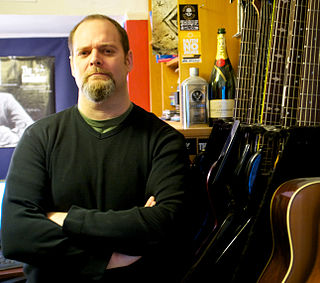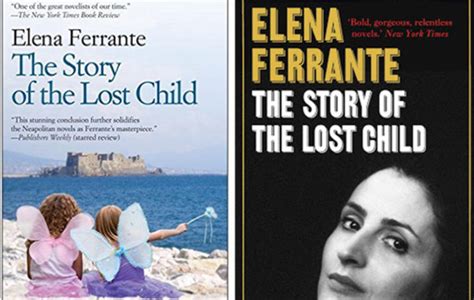Цитата Барри Лопеса
Если бы я дал какой-нибудь совет молодым писателям, он был бы таким: будьте разборчивы и проницательны в отношении работы, которую вы ставите перед собой. После этого будьте неискушенным путешественником, нетерпеливым читателем, восторженным слушателем. Тщательно сложите воедино то, что вы узнали, а затем пишите вдумчиво, с уважением как к читателю, так и к вашим источникам.
Связанные цитаты
Остерегайтесь советов. Внимательно изучите свои источники. Посмотрите их. Посмотрите, уважаете ли вы то, что они сделали. Получить образование. Будьте в курсе того, кто настоящий, а кто нет. Изучайте свое ремесло и свою отрасль, постоянно практикуйтесь, бросайте себе вызов — пишите то, что, по вашему мнению, у вас не получается, пробуйте то, что, как вам сказали, не стоит пробовать — оставьте место для сюрпризов и научитесь сотрудничать.
Я думаю, что хитрость писателя заключается в том, чтобы постоянно раскрывать свои карты и быть готовым быть в таком же неведении относительно того, что произойдет дальше, как был бы в это время ваш читатель. И тогда вы действительно сможете удивить себя. Есть такое клише: "Ни для писателя, ни для читателя!"
Любя свой предмет, вы будете писать о нем со спонтанностью и энтузиазмом, которые передастся вашему читателю. Любя своего читателя, вы будете уважать его и хотеть доставить ему удовольствие. Вы не будете писать ему. Вы будете прилагать бесконечные усилия к своей работе. Ты будешь хорошо писать. И если вы хорошо напишете, вас опубликуют.
Если бы вы только помнили, прежде чем сядете писать, что вы были читателем задолго до того, как стали писателем. Вы просто закрепляете этот факт в уме, затем сидите неподвижно и спрашиваете себя, как читатель, какое произведение во всем мире больше всего хотел бы прочитать Бадди Гласс, если бы у него был выбор сердца. Следующий шаг ужасен, но настолько прост, что я с трудом могу поверить, когда пишу его. Вы просто бесстыдно садитесь и пишете сами. Я даже не буду это подчеркивать. Это слишком важно, чтобы подчеркивать.
Для меня писательство — это долгий, трудный, болезненный процесс, но он вызывает привыкание, удовольствие, которое я активно ищу. Мой совет молодым писателям таков: много читайте. Прочтите, чтобы узнать, что сделали писатели прошлого. Тогда напишите о том, что вы знаете. Напишите о своей школе, своем классе, о своих учителях, своей семье. Это то, что я сделал. Каждый писатель должен найти свой собственный голос. Наконец, вы должны продолжать писать.
В ту минуту, когда вы заканчиваете писать кусок, он уже не принадлежит вам, вы его больше не пишете, он принадлежит вам, читателю, слушателю, аудитории. Так что, чем меньше вы знаете о том, говорю ли я о своей жизни или говорю о вашей жизни, я думаю, тем лучше. Тогда оно может принадлежать вам и жить вне того момента, когда оно было зачато.
Пишите то, что хотите прочитать. Так много людей думают, что им нужно написать книгу определенного типа или имитировать успешный стиль, чтобы ее опубликовали. Я знал людей, которые чувствовали, что должны строить свои книги по образцу существующих блокбастеров или писать в жанре, который должен быть «горячим прямо сейчас», чтобы заинтересовать агентов и издателей. Но если вы пишете в жанре, который вам не нравится, или подражаете книге, которую не уважаете, это проявится. Вы — ваш первый и самый важный читатель, так что пишите книгу, которую читатель действительно захочет прочитать.
Я несу полную ответственность перед читателем. Читатель должен доверять мне и никогда не чувствовать себя преданным. Между писателями и читателями существуют двойные стандарты. Читатели могут изменять писателям в любое время, когда захотят, но писатели никогда не должны изменять читателям. И это уместно, потому что автору платят, а читателю нет.
Лучший совет, который я могу дать по этому поводу, — как только это будет сделано, отложите его, пока вы не сможете прочитать его новыми глазами. Закончите рассказ, распечатайте его, затем положите в ящик стола и напишите другие вещи. Когда вы будете готовы, возьмите его и прочитайте, как будто вы никогда не читали его раньше. Если есть вещи, которые вас как читателя не устраивают, войдите и исправьте их как писатель: это исправление.
У вас очень короткие блоги о путешествиях, и я думаю, что среди писателей-путешественников есть раскол: авторы, ориентированные на услуги, скажут: «Ну, читатель хочет читать о своей поездке, а не о вашей». А я говорю, что читатель просто хочет прочитать хорошую историю и, возможно, чему-то научиться.

































